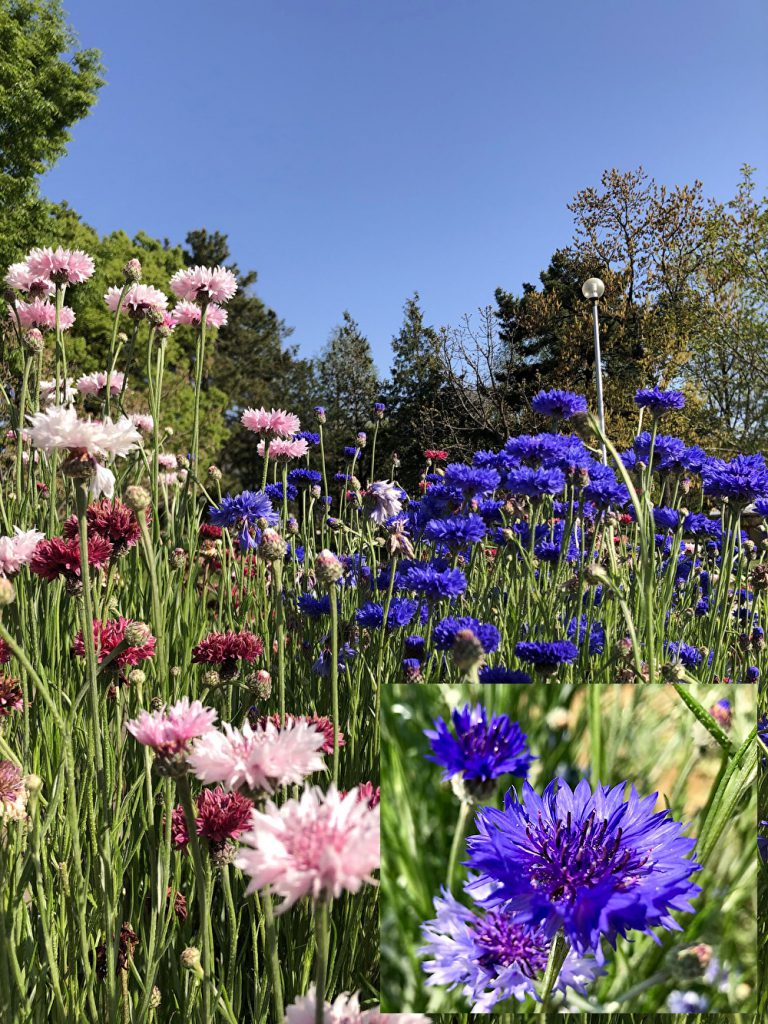
Yaguruma-giku(the cornflowers) begin to bloom as Tango-no-Sekku(the Boys’ Festival) approaches. At the same time, Koi-nobori(carp streamers) begin to be noticeable. The arrow wheel on the top of Koi-nobori is ringing in the breeze of spring. The cornflower native to Southeastern Europe, which has a strong Mediterranean climate, is called cornflower and was originally a weed that blooms in wheat fields. From the end of April to the beginning of summer, flowers such as blue, purple, peach and white bloom. Among them, the beauty of bluish purple is called cornflower blue, and it is so much that it is referred to the color of the finest sapphire. It is displayed on the casket of King Tutankhamen of Egypt, and Marie Antoinette likes to use it for the pattern of Western tableware, and it seems that its noble beauty has been attracting attention from ancient times.
端午の節句が近くなると、ヤグルマギクが咲き始めます。それと共に鯉のぼりが目に付き始めます。鯉のぼりのてっぺんの矢車が春の微風にカラカラと鳴っています。地中海気候的な要素が強い南東ヨーロッパ原産のヤグルマギクはコーンフラワーと呼ばれ、元は麦畑に咲く雑草でした。4月の終わり頃から初夏にかけ、青・紫・桃・白などの花を咲かせます。中でも青紫色の美しさはコーンフラワーブルーと言って、最高級のサファイアの色味の引き合いに出される程です。エジプトのツタンカーメン王の棺の上に飾られていたり、マリー・アントワネットが洋食器の模様に好んで使ったり、古来からその高貴な美しさには注目されていたようです。
